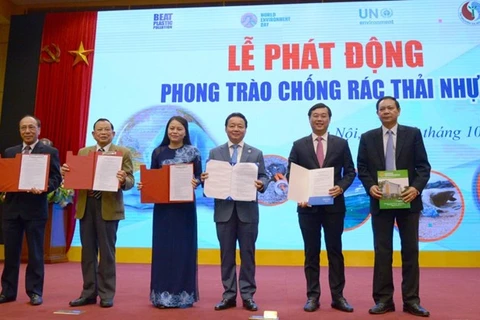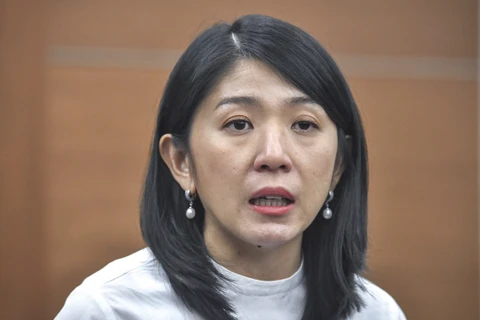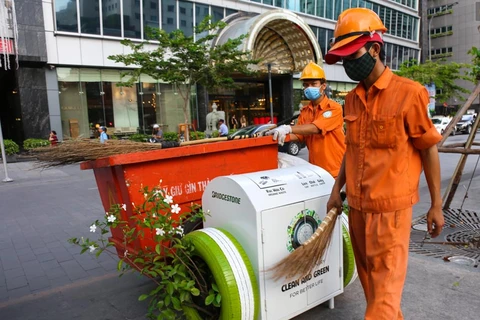Hanoi (VNA) – A sperm whale has been found dead in Indonesia with 6kg of plastic rubbish, including 115 cups and 25 bags, in its stomach, raising concerns among environmentalists and throwing the spotlight on the country’s waste problem, the AFP news agency reported on November 21.
The 9.5m carcass was found in Wakatobi National Park in southeast Sulawesi province.
Dwi Suprapti, a marine species conservation coordinator of the World Wildlife Fund Indonesia, said the exact cause of the whale’s death is not yet known, but there are certainly signs that plastic waste might have triggered it.
Wakatobi district has urged the Indonesian Government to help tackle the marine debris crisis.
Indonesia is rated as the world’s second biggest contributor to marine debris after China, and a colossal 1.29 million tonnes is estimated to be produced annually.
The problem has grown so bad that Indonesian officials declared a “garbage emergency” last year after a 6km stretch of coast along the island of Bali was swamped with rubbish.
Indonesia has pledged to reduce marine plastic waste by 70 percent by 2025.
It plans to boost recycling services, curb the use of plastic bags, launch clean-up campaigns, and raise public awareness. –VNA
The 9.5m carcass was found in Wakatobi National Park in southeast Sulawesi province.
Dwi Suprapti, a marine species conservation coordinator of the World Wildlife Fund Indonesia, said the exact cause of the whale’s death is not yet known, but there are certainly signs that plastic waste might have triggered it.
Wakatobi district has urged the Indonesian Government to help tackle the marine debris crisis.
Indonesia is rated as the world’s second biggest contributor to marine debris after China, and a colossal 1.29 million tonnes is estimated to be produced annually.
The problem has grown so bad that Indonesian officials declared a “garbage emergency” last year after a 6km stretch of coast along the island of Bali was swamped with rubbish.
Indonesia has pledged to reduce marine plastic waste by 70 percent by 2025.
It plans to boost recycling services, curb the use of plastic bags, launch clean-up campaigns, and raise public awareness. –VNA
VNA
























